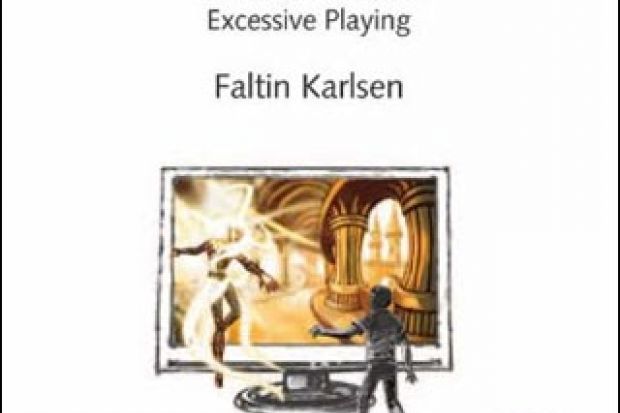How does excessive gaming affect players and their lives? In an effort to answer that question, Faltin Karlsen conducted interviews with online gamers from eastern Norway playing World of Warcraft, the most popular Massively Multiplayer Online Role-Playing Game (MMORPG). Using virtual ethnography allowed him to become actively involved in the game world, and to observe and interview participants.
What Karlsen discovered was that participants experienced some of the six addiction criteria identified by Mark Griffiths, an authority in the field of behavioural addictions. These include salience (a preoccupation with gaming), mood modification (using gaming to escape from real life or to create a “buzz”), tolerance (spending increasingly more time and energy on the game), withdrawal (experiencing negative physiological and psychosocial effects upon discontinuation of play), conflict (problems with the social environment and problems with oneself) and relapse (continuing game play after a period of abstinence). Most importantly, Karlsen found that it is the criteria of conflict and relapse that differentiate highly engaged and dedicated players from those whose gaming is pathological. As a consequence of their excessive gaming, some players have arguments with their family and friends, are kicked out of home and school, become delinquent, abuse alcohol and lose intimate relationships. Similarly, a strong indicator of problems is recurrent gaming excesses after abstinence. Players may be aware of the negative consequences of their gaming but lose control over their behaviours, and engage in gaming to the detriment of their social relationships and psychological health.
Karlsen is critical of current diagnostic systems that pathologise gaming, and strongly advocates a new vantage point for analysing gaming and gaming problems by stepping out of psychological and behaviourist theories. These he sees as reductionist and focused on similarities between phenomena, particularly pathological gambling and substance dependence, rather than on game structure and gaming context. He is sceptical of researchers who have sought to establish a gaming addiction diagnosis, and critical of the American Psychiatric Association’s decision to characterise Internet Gaming Disorder in its latest Diagnostic and Statistical Manual of Mental Disorders (DSM-5) as a condition that requires further research. According to Karlsen, this will have detrimental consequences, particularly in light of already-strict regulation and censorship of video games. He argues instead for an open internet, including online games, free for all and without governmental restrictions.
Rather than focusing on diagnosing pathological gaming from a psychological perspective, he suggests, gaming should become the centre of attention, and understood from within its sociocultural context. This includes the social practice and cultural meaning of games as well as individuals’ connection to the game. Karlsen hopes to shed light on the different shades of grey between “good” gaming (gaming for fun) and “bad” gaming (gaming addiction) and criticises this binary view. He consults game and media studies to understand why people play games and what it is that games offer them, beyond the psychological rewards that reinforce gaming. This is clearly the strength of his book; Karlsen’s expertise in the field allows him an in-depth insight into the game’s structure and mechanics, while at the same time ensuring that he is able to discern the deeper meaning gaming has for his informants.
Overall, Karlsen’s analysis adds significantly to the gaming studies field and the discussion of gaming addiction by providing contextualised information about gaming excesses. It sheds a critical light on the medicalisation of gaming problems and diagnostic issues, without disregarding the fact that for some players, excessive gaming is detrimental. This is a book for technosceptics and game aficionados alike – and it made me want to start playing World of Warcraft again.
A World of Excesses: Online Games and Excessive Playing
By Faltin Karlsen
Ashgate, 178pp, £55.00
ISBN 97814094636 and 9781472400970 (e-book)
Published 9 August 2013
Register to continue
Why register?
- Registration is free and only takes a moment
- Once registered, you can read 3 articles a month
- Sign up for our newsletter
Subscribe
Or subscribe for unlimited access to:
- Unlimited access to news, views, insights & reviews
- Digital editions
- Digital access to THE’s university and college rankings analysis
Already registered or a current subscriber? Login




